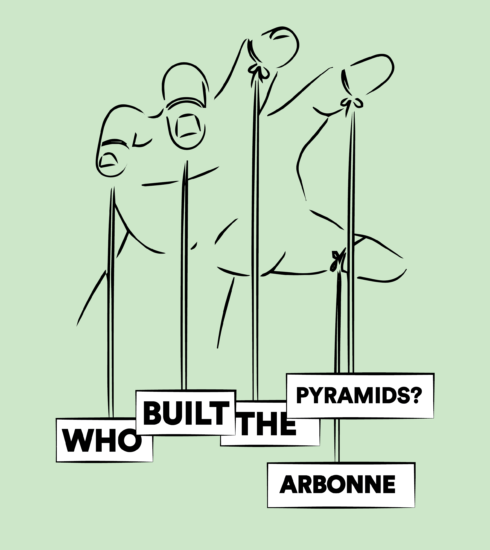Gender in the Gym – Issue 4
Gyms can be a scary place. Think of it like you are travelling overseas to a new country, you step in and the space is foreign. There are machines you have no idea are for your arms or legs. Your technique on your squat is probably at best subpar and you overestimate the speed level on the treadmill till you’re seconds close to face planting. But the scariest part in all honesty is the pressure of finding that sense of belonging and acceptance.
Conforming to Gender Stereotypes
One way we do that, either consciously or subconsciously, is by conforming to gender stereotypes of ideal masculine and feminine body norms. You know what I’m talking about, guys getting ‘buff’ and girls getting ‘skinny’ or ‘slim-thick’. These ideals, however, are rooted in decades of trying to fit a common sense understanding of a culture’s ideal standard of attractiveness. It pressures us to behave certain ways, in certain environments, till we can’t differentiate between ‘do I really like wearing a cap in the gym?’ or ‘I like wearing a cap in the gym because it makes me look 10x more masculine.’
Gym Hierarchy
The harsh reality is gym spaces have been constructed like a social hierarchy. Physically if you ‘fit’ the idolized gender norm, you are more likely to feel more comfortable in the space. When a male enters the gym, they have a ‘natural inclination’ towards the weights room and when a female enters the weights room, they have a natural inclination towards the cardio machines. It’s not a ‘natural inclination’ however, it’s a gendered understanding that has been drilled into our heads since the day we were born.
Decades have gone by where there has been a social pressure for males to ‘put on weight’ in the form of muscle mass, because being ‘big and ‘buff’’ equated to more opportunities to attain social power. It is only reinforced by our culture, particularly the way New Zealand idolizes ‘Ruby, racing and beer.’ We push privileging traditional forms of masculinity to the extreme and just assume there won’t be consequences that trickle down into spaces like gyms.
Dysmorphia
I came across the term ‘bigorexia’ the other day on google, a term describing a condition called muscle dysmorphia. Society has privileged the ‘muscular’ male, which has evolved to guys putting immense pressure on themselves to attain this ideal ‘masculine’ physique. But what happens when your pecs aren’t as swole as you’d like? What happens when your gym buddy is filling out faster than you are? What happens when you have been in a caloric surplus for the past 6 months but still feel like a ‘stick’? You’re hitting the gym every day, overdosing on protein powder, constantly mirror checking and measuring yourself but you’re still not as ‘buff’ as you’d like to be. I was just told the other day why my male friend wore a hoodie in the gym, it was so others wouldn’t see how small his arms were. I thought it was ridiculous at first, it felt uncommon to hear that a guy was self-conscious. Right there is a stereotype that males aren’t insecure, that they can’t suffer from self-loathing, depression, anxiety, or even eating disorders. This is completely toxic, and it stems from trying to fit gender into a box of the way they should socially behave. You can’t use the terms, “man up bro, one more set” or “your lifting less than that girl over there,” without brainwashing the idea that vulnerability, weakness or emotionality are emasculating. It should be avoided at all cost.
A Fresh Pair of Eyes
If you look close enough, you’ll start to notice how gyms are gendered in so many ways. Active wear, for example, can be quite the social inhibitor. There is this social pressure for females to wear clothing that accentuates their ‘femininity.’ I’m talking the crop tops and the tight leggings. I’m guilty of it. I mean, why did I feel so much better about myself wearing my new matching set, why did it make me feel more comfortable? In hindsight, I probably felt more comfortable – not because of the new sweat-wicking fabric – but because what I was wearing made me feel like I had more social assets therefore a sense of belonging in the space.
One of the biggest common fears of females weightlifting is the assumption they’ll get too muscly and will look too masculine. Where did this fear of females putting on muscle become such a socially imbedded issue? Last time I checked, muscle improves health, the ability to carry out daily activity, prevents injuries, increases our stability, and overall happiness. I’m no scientist but if we were in the stone age, I’m pretty sure the more muscular female would have the advantage of surviving over the less muscular one. So how exactly has female muscle gain developed this negative sigma and morphed into a social disadvantage? Why exactly have we been treating frailty as desirable? Because, to put it bluntly, that’s exactly the social hinterland we have created. Females are so scared to put on muscle or are very selective of where they put it on that it restricts how they feel and preform in gym spaces. Consumer culture is marketing women to be empowered and fit, however, they have created a very confined idea of what the muscular female body should look like. And that my friends, is the body to please the patriarchy. If this weren’t the case, there wouldn’t be that slight sickness in your gut when walking into the weights room, or the heat you feel from what you think is eyes in the back of your head. Pretty much, if you see a female walk into the weights room, don’t stare at her like she is an alien, respect her like you would anybody else who is lifting iron and crushing goals.
Society has falsified this idea of empowering females by encouraging them to go to the gym and become a strong independent women, but not too strong or too muscular because too much is apparently unfeminine. Too much threatens the exclusiveness of the traditional masculine space. Too much infringes on binary gender understandings that implies that strength is not essentially a product of masculinity; rather it is fluid and universal and within any bodies grasp.
Eye Intimidation
Being a female, you are constantly aware of the ‘lurking eyes’. You are aware that doing a stretching lunge will grab more attention than doing a shoulder press. You get caught in this inner mental battle of not doing anything that will provoke being objectified, but not wanting objectification hold you back from your goals. I’m not saying that everybody should walk around with their heads facing the ground to avoid ‘checking people out’ but you should be wary that people don’t go to the gym wanting to be stared like the 9th wonder of the world. Yes, there are certain exercises that can tempt the imagination, but doing a squat or hip thrust is not an open invitation to be sexualized in any way of form. In most cases, generally, people are uncomfortable to begin with. I avoided doing it for months making the excuse that I didn’t have technique down. In reality, I was too scared of those lurking eyes.
If anybody has their earphones in their ears it probably means they aren’t open to socializing. A lot of the time people are under a time crunch to get in, get their workout done, and get out which doesn’t leave time for a 10-minute yarn with the person on the next machine. Don’t take it personally if someone doesn’t respond to a question, if anything blame the big tech companies for making the noise cancellation feature on earphones so good.
And just to stress a very important point, if you see someone you like the look off and you want to go over, chat to them, and grab their number. Unless you know for certain they are sending obvious vibes your way, don’t go over and interrupt their workout. If they are wearing their headphones and avoiding all eye contact, that is not a green light. Speaking from experience that is a very red light! And if you think you’re smart by going over and critiquing their technique on their lunge in hopes they’ll ask you for a one-on-one gym foundations class, you’re not. If anything, it will make them more uncomfortable and they’ll actively change the time of day they usually come in for a session. Don’t be that person, spark up a conversation outside the gym in a neutral space. Where the person feels comfortable that you want actually want to get to know them beyond how good they look in there workout clothes.
A Resolution
So why go to the gym despite all that I have said? You could bullet point actual health statistics, but I’m not in the mood for empirical data. Before I wrote this I was walking on the footpath and I could feel the strength ripple through my body each time I planted my foot. It was empowering. It didn’t feel like that a year ago, a month, or even a week. The feeling of strength constantly grows, and it makes me smile. I know it sounds stupid, hitting the weights 4 times a week’s so I feel good walking. Instead it was a reminder of the dormant power I had built, that I had within me, that I could pull out at any moment that I needed. Being a female walking the streets you always have that heightened awareness in your gut. You were brought up in a society that constantly remined that you were the ‘vulnerable gender’. So, to have an opportunity to walk and ease that pit in my stomach even a little was comforting. The gym is a space that offers so much opportunity to forge your strongest self physically and mentally, that’s why you go and keep going back. It’s also why we need to challenge gender stereotypes so everybody has that same opportunity.
So how do we challenge it? You stop, take a breath, look around, and question every single action you are doing in the gym space. Question why you are feeling uncomfortable, why the female doing bicep curl looks uncomfortable, why a guy is wearing a hoodie when it’s 27 degrees inside. We stop and ask ourselves if there’s any logical justification for these barriers besides what gender stereotypes have made us believe.




